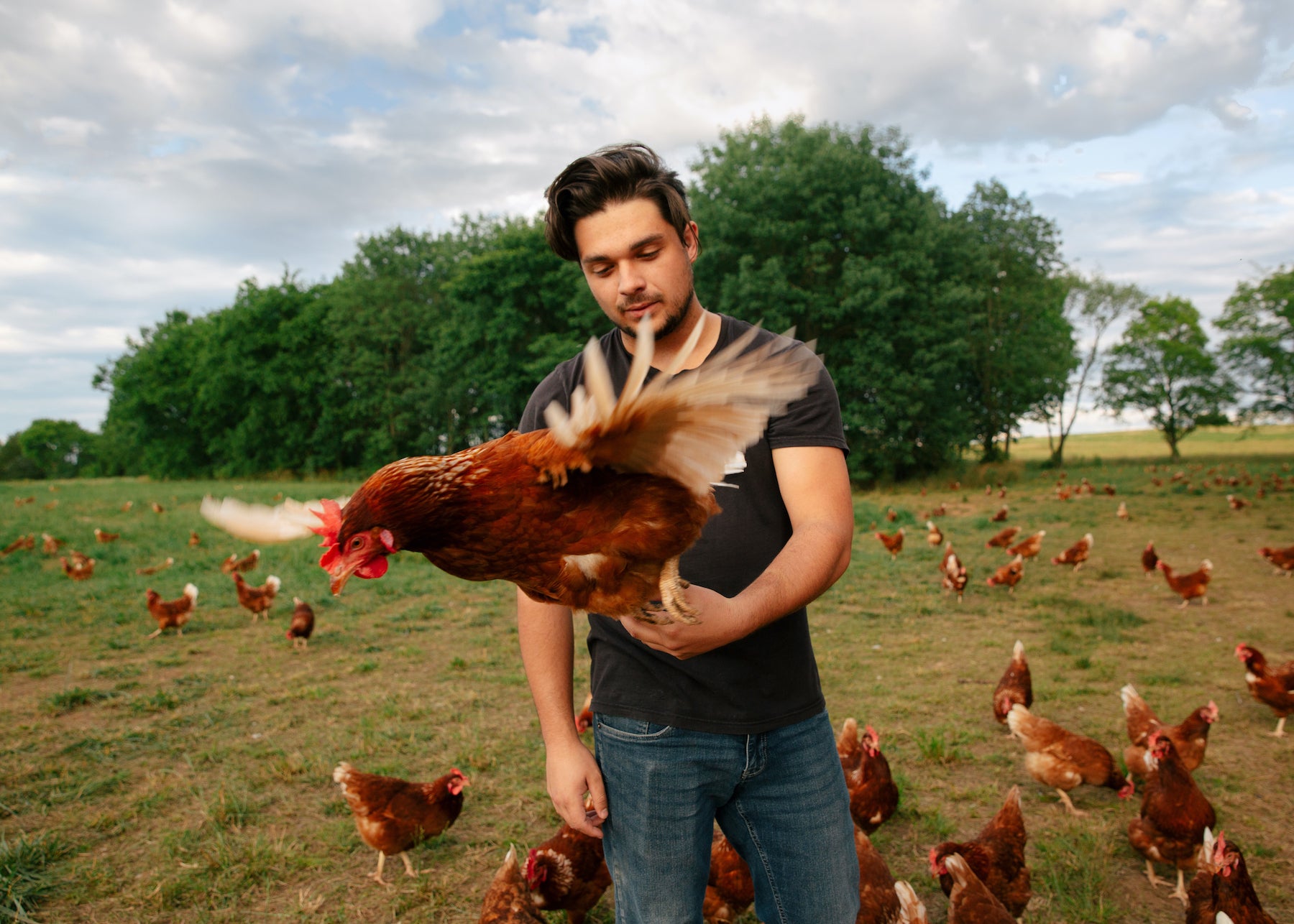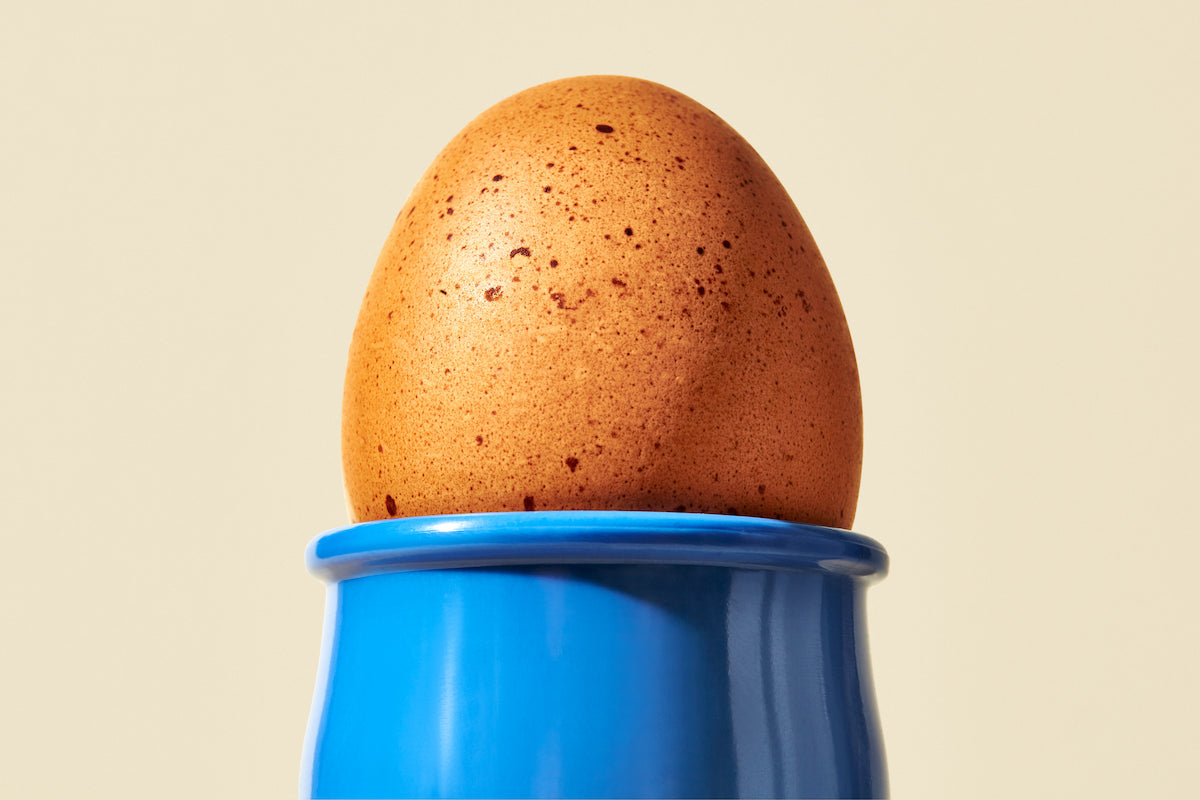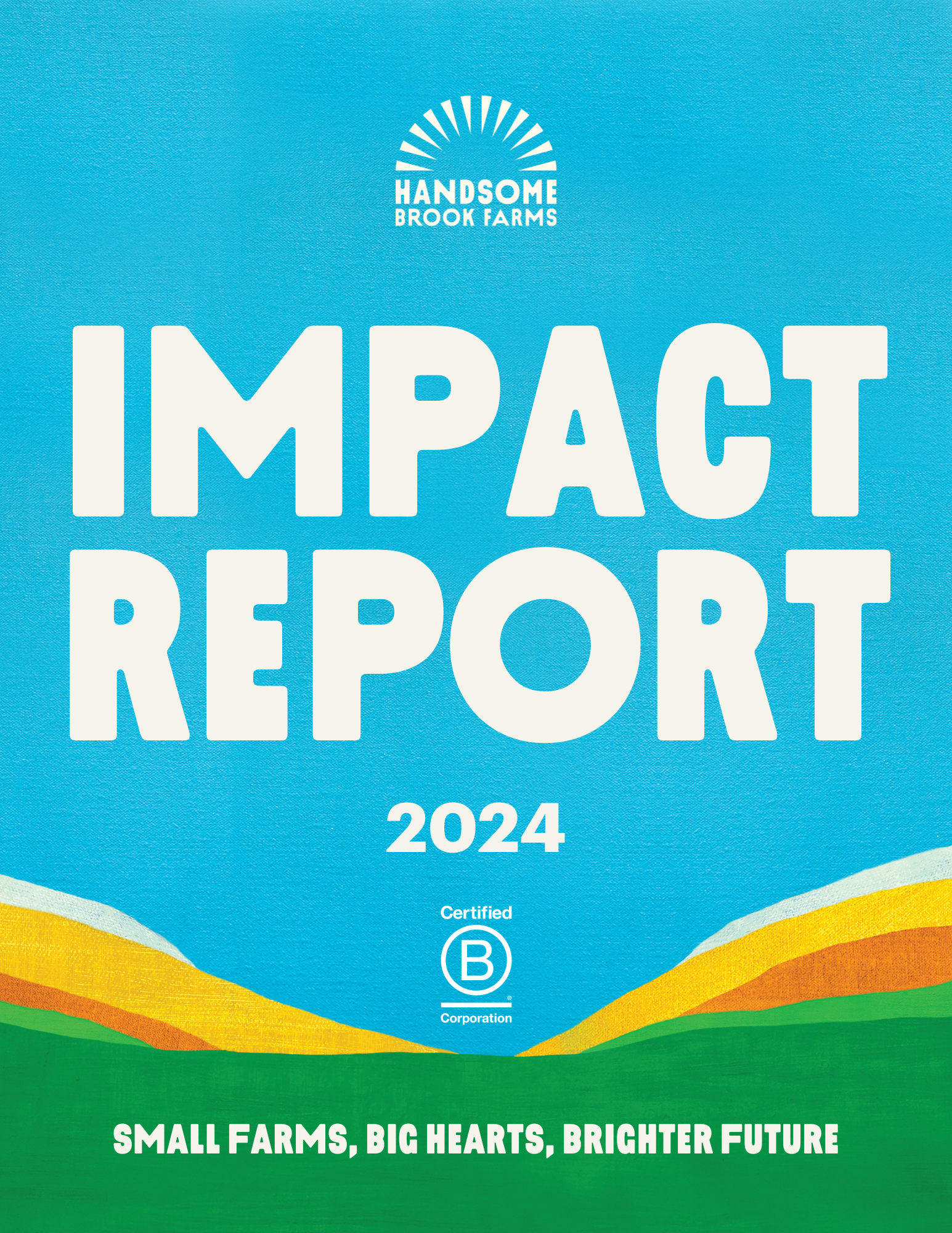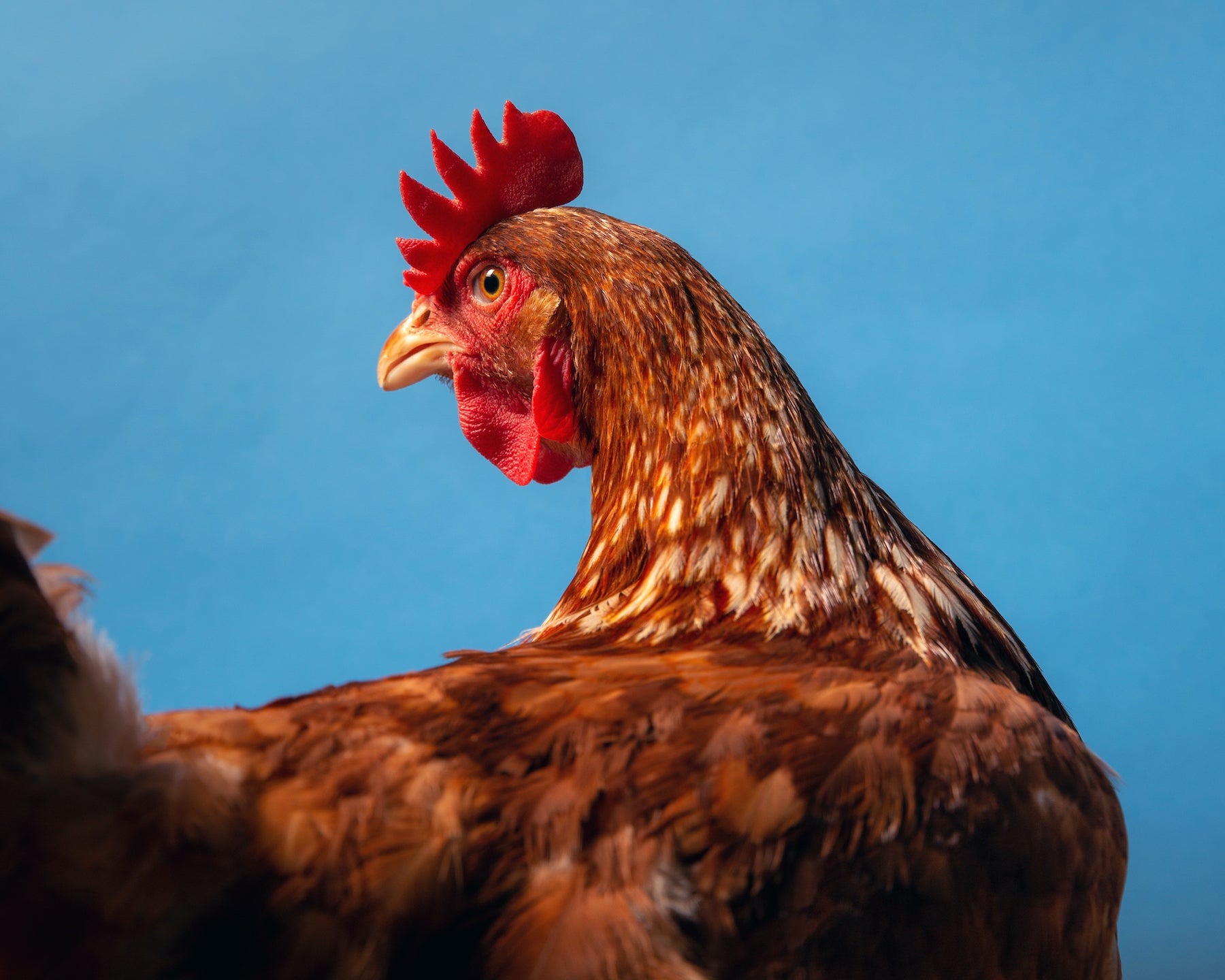What Does “Organic” Actually Mean for Your Eggs?

Does organic really make a major difference or is it a “fad?” We get it. It can be confusing. So, what does it actually mean? And is buying organic eggs worth it? We sure think so.
How organic affects our hens > your eggs > and you
WHAT HENS EAT - Quality, Pesticide-free, Non-GMO Feed
Just like us, there are days when our hens don’t feel like leaving the house or when the weather proves too fierce. On these days, our hens rely on organic supplemental feed rather than food they find while roaming the pasture. Organic here means that this milled mix of corn, soy, wheat and alfalfa is, of course, free from chemicals and pesticides. Remember, “non-GMO” just means the feed wasn’t genetically modified - not that it’s chemical free. Organic ensures overall quality and cleanliness of our Handsome’s feed. You wouldn’t eat chemicals, so should the hens that lay your eggs?
There is also proof that antibiotic use in animals can lead to the loss of effectiveness of these drugs in human medicine — posing a public health risk. The good news is that our hens don’t need antibiotics, and we use natural solutions to treat their ailments. We also give our hens ample space and keep flocks small, which reduces the cramped conditions that encourage the spread of disease.
WHERE HENS LIVE - With No Toxic Chemicals
Organic means that our hens roam in pastures that have not been sprayed with chemicals or pesticides (nor used for other cropping) in at least three years. They eat zero chemicals and pesticides, and as a result, you eat no chemicals and pesticides.
Not-so-fun fact: Recently, the USDA passed and then almost immediately withdrew a new qualifying set of rules for animal care, production practices and living conditions required to be officially considered organic. These included new (higher) standards largely addressing indoor and outdoor space requirements — standards that we already uphold as pasture-raised farms. This particular example highlighted the volatility of the definition of “organic” and the need to truly understand the bar your producers are setting for themselves on an individual basis — i.e. organic isn’t everything. Organic *plus* pasture-raised is where it’s at. (Our response to the withdrawal can be found here).
How organic affects our Earth...
Organic Eggs Mean Better for the Earth
By using organic land, we ensure that the earth is healthier for generations to come. There are no pesticides to run off into the groundwater during rains or herbicides to contaminate other nearby fields.
Beyond this, Handsome Brook has actually already begun the long process of working with our farmers to build regenerative systems. This includes planting native flora, examining runoff patterns and helping to improve overall soil health and stop erosion. The process is not a short one and will take multiple seasons to roll out to each farm, but it is part of our continual commitment to our planet, our farmers and, of course, our hens.
We hope this broken down definition of organic eggs was helpful for you and why organic PLUS pasture-raised is the most humane & sustainable combination — for both the hens, humans, and the planet). High quality pasture land + high quality organic feed = better eggs, happier hens and healthier humans.


